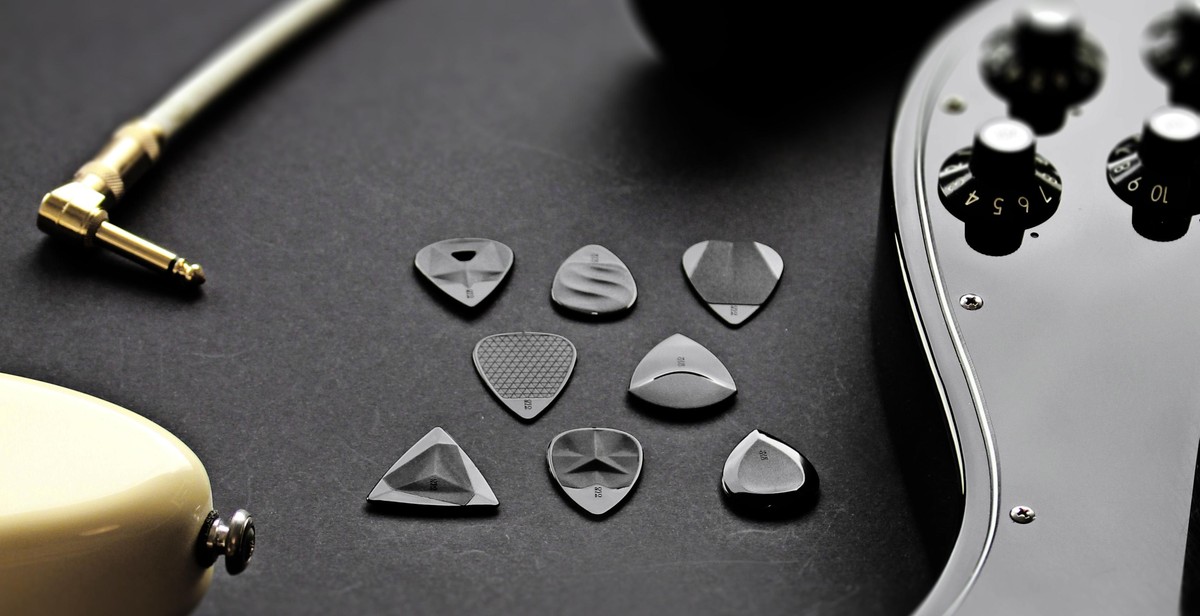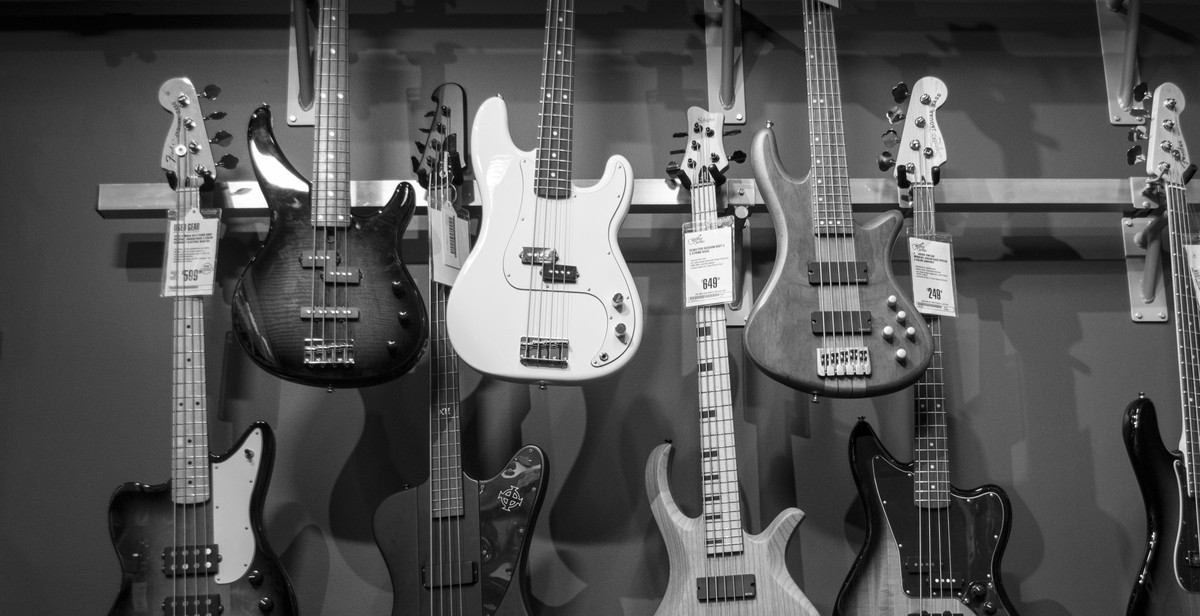How to Choose the Right Bass Guitar for Your Groove
As a bass player, choosing the right bass guitar is crucial to creating the perfect groove. The bass guitar is the backbone of any band, providing the foundation for the melody and rhythm of a song. It is the instrument that connects the drums and the rest of the band, making it an essential part of any musical arrangement.
Why Choosing the Right Bass Guitar is Important
Choosing the right bass guitar is important because it can affect the sound of your music. The tone, playability, and feel of your bass guitar can make a significant difference in how your music is perceived by your audience. A good bass guitar can inspire creativity and help you achieve the sound you are looking for.
There are many factors to consider when choosing a bass guitar, such as the type of wood used in the body and neck, the number of strings, the type of pickups, and the brand. Each of these factors can impact the tone and playability of the bass guitar.
Ultimately, choosing the right bass guitar is a personal decision that depends on your individual preferences and playing style. By considering all of the factors and trying out different bass guitars, you can find the perfect instrument to help you create the perfect groove.

Understanding the Types of Bass Guitars
When it comes to choosing the right bass guitar for your groove, it’s important to understand the different types of bass guitars available. The two main types of bass guitars are electric and acoustic. Each type has its own unique sound and features, and choosing the right one will depend on your personal preferences and playing style.
Electric Bass Guitars
Electric bass guitars are the most common type of bass guitar used in modern music. They are designed to be played through an amplifier and produce a loud, powerful sound that is perfect for rock, pop, and other genres that require a strong bass presence.
Electric bass guitars come in a variety of shapes and sizes, from the classic Fender Precision Bass to the modern Ibanez SR Series. They are typically made of solid wood and feature magnetic pickups that convert the strings’ vibrations into an electrical signal that can be amplified.
One of the advantages of electric bass guitars is their versatility. They can be played with a variety of techniques, including fingerstyle, slap and pop, and pick playing. They also have a wide range of tone options, thanks to onboard equalizers and tone controls.
Acoustic Bass Guitars
Acoustic bass guitars are designed to be played without an amplifier and produce a more natural, organic sound. They are typically larger than electric bass guitars and feature a hollow body that amplifies the sound produced by the strings.
Acoustic bass guitars are perfect for unplugged performances and are often used in folk, bluegrass, and other acoustic genres. They are also great for practicing at home without disturbing your neighbors.
One of the advantages of acoustic bass guitars is their portability. Unlike electric bass guitars, they don’t require an amplifier or other equipment to play, making them perfect for impromptu jam sessions.
| Feature | Electric Bass Guitars | Acoustic Bass Guitars |
|---|---|---|
| Sound | Loud and powerful | Natural and organic |
| Playing style | Fingerstyle, slap and pop, pick playing | Fingerstyle, pick playing |
| Size | Varies | Larger |
| Portability | Requires an amplifier | Can be played without an amplifier |
| Price | Varies | Generally more expensive |
Ultimately, the choice between an electric or acoustic bass guitar will depend on your personal preferences and playing style. If you’re looking for a versatile instrument that can be used in a wide range of genres, an electric bass guitar might be the best choice. If you prefer a more natural, organic sound and don’t want to be tied to an amplifier, an acoustic bass guitar might be the way to go.

Factors to Consider When Choosing a Bass Guitar
Choosing the right bass guitar can be a daunting task, especially for beginners. With so many options available, it can be overwhelming to know where to start. However, there are several factors that you should consider when choosing a bass guitar that will help you find the right one for your playing style and needs.
Playing Style and Genre
The first factor to consider when choosing a bass guitar is your playing style and the genre of music you want to play. Different genres of music require different playing styles, and some bass guitars are better suited for certain styles than others. For example, if you’re playing rock or heavy metal, you may want a bass guitar with a more aggressive sound and heavier strings. On the other hand, if you’re playing jazz or funk, you may want a bass guitar with a brighter tone and lighter strings.
Body Style and Weight
The body style and weight of a bass guitar can also have a significant impact on your playing experience. Some bass guitars have a more traditional design, while others have a more modern look. Additionally, some bass guitars are heavier than others, which can be a concern if you plan on playing for long periods of time. It’s important to find a bass guitar that is comfortable for you to play and that fits your body type.
Number of Strings
Bass guitars come in a variety of different string configurations, including four, five, and six strings. The number of strings you choose will depend on your playing style and the type of music you want to play. For example, if you’re playing rock or metal, a four-string bass guitar may be sufficient. However, if you’re playing jazz or fusion, you may want a five or six-string bass guitar to give you more range and versatility.
Pickups and Electronics
The pickups and electronics on a bass guitar can have a significant impact on the sound and tone of the instrument. Some bass guitars have passive pickups, which are more traditional and produce a warmer tone. Other bass guitars have active pickups, which are more modern and produce a brighter, more aggressive tone. Additionally, some bass guitars have built-in electronics, such as EQ controls and tone shaping options, which can allow you to customize your sound even further.
Budget
Finally, your budget is an important factor to consider when choosing a bass guitar. Bass guitars come in a wide range of prices, from a few hundred dollars to several thousand dollars. While it’s important to find a bass guitar that fits your playing style and needs, it’s also important to find one that fits your budget.
| Factor | Considerations |
|---|---|
| Playing Style and Genre | Different genres require different playing styles, and some bass guitars are better suited for certain styles than others. |
| Body Style and Weight | The body style and weight of a bass guitar can impact your playing experience, so find one that is comfortable for you to play and fits your body type. |
| Number of Strings | Choose a bass guitar with the number of strings that fits your playing style and the type of music you want to play. |
| Pickups and Electronics | The pickups and electronics on a bass guitar can impact the sound and tone of the instrument, so consider whether you want passive or active pickups and built-in electronics. |
| Budget | Find a bass guitar that fits your playing style and needs, but also fits your budget. |

Testing and Evaluating a Bass Guitar
When choosing the right bass guitar for your groove, it is important to test and evaluate the instrument before making a purchase. Here are three key factors to consider when testing and evaluating a bass guitar:
Playability and Comfort
The playability and comfort of a bass guitar are crucial to your overall playing experience. A bass guitar should feel comfortable in your hands and be easy to play. When testing a bass guitar, pay attention to the neck and fretboard. Is the neck comfortable to hold? Are the frets easily accessible? Can you play the bass for an extended period of time without experiencing discomfort?
Additionally, consider the weight and balance of the bass guitar. Is it too heavy or too light? Does it feel balanced when you hold it? These factors can have a significant impact on your playing comfort.
Tone and Sound Quality
The tone and sound quality of a bass guitar are also important factors to consider. When testing a bass guitar, play it through an amplifier and listen to the sound it produces. Does it have a clear and defined tone? Is the sound consistent across all strings and frets?
Experiment with different playing techniques and styles to see how the bass guitar responds. Does it produce a good slap tone? Can it handle fingerstyle playing? These are important considerations when evaluating the tone and sound quality of a bass guitar.
Build Quality and Durability
The build quality and durability of a bass guitar are important factors to consider, especially if you plan on using the instrument for live performances or recording sessions. Examine the construction of the bass guitar and look for any visible flaws or defects. Check the hardware and electronics to ensure they are functioning properly.
Additionally, consider the materials used to construct the bass guitar. Is the wood of high quality? Are the hardware and electronics durable and built to last? These factors can impact the longevity and overall quality of the bass guitar.
| Factor | Considerations |
|---|---|
| Playability and Comfort | Neck and fretboard comfort, weight and balance |
| Tone and Sound Quality | Clear and defined tone, consistency across strings and frets, ability to handle different playing techniques and styles |
| Build Quality and Durability | Construction quality, hardware and electronics functionality, materials used |
By considering these factors and thoroughly testing and evaluating a bass guitar, you can ensure that you choose the right instrument for your playing needs and preferences.

Conclusion
Choosing the right bass guitar is a crucial step in becoming a successful musician. It is important to consider your playing style, skill level, and budget when making this decision. By following the tips and guidelines outlined in this article, you can ensure that you select a bass guitar that meets your needs and helps you achieve your musical goals.
Key takeaways
- Consider your playing style when choosing a bass guitar
- Choose a bass guitar that matches your skill level
- Set a budget and stick to it
- Try out different bass guitars before making a purchase
- Consider purchasing a bass guitar package for added value
Final thoughts
Ultimately, the right bass guitar for you is the one that feels comfortable to play, sounds great, and inspires you to create music. Whether you are a beginner or a seasoned pro, taking the time to choose the right bass guitar can make all the difference in your musical journey. So, do your research, listen to your instincts, and enjoy the process of finding your perfect bass guitar.
